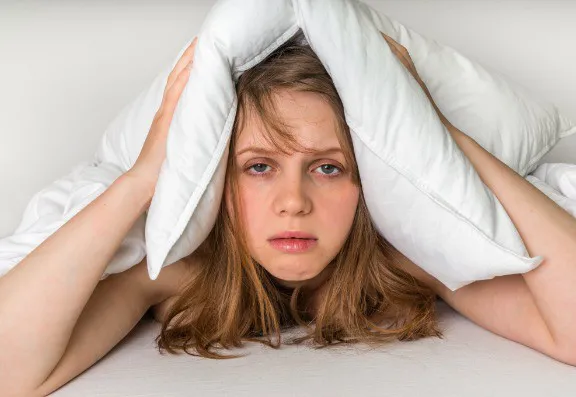Many women find that they struggle to sleep during their perimenopausal and menopausal years, which can have a hugely negative impact on their quality of life.
Here we look at why your sleep may be affected and what you can do about it.
Menopause occurs when your ovaries stop producing oestrogen and progesterone. Both of these hormones are linked to bodily functions that affect sleep.
Oestrogen helps keep our body temperature low, which helps us get a good night’s sleep. It also manages serotonin levels, commonly known as the feel-good hormones.
When oestrogen declines, you may experience hot flushes, night sweats and a low mood, which all contribute to a bad night’s sleep.
In addition, lower levels of progesterone can lead to sleep apnoea, which is when the walls of the throat relax and narrow, interrupting normal breathing.
And to top it off, other life stresses and medications can impact your sleep. Children leaving home and elderly parents needing more support while you’re still trying to work can all take a toll on your mental health. You may also be suffering from aches and pains associated with ageing which make sleeping more difficult.

If hot flushes and night sweats are the problem, you should consider:
If you’re suffering from insomnia or are waking frequently, you should try:
For sleep apnea, it’s important you see your GP. They may advise you on lifestyle changes that can help or, in severe cases, give you a device called a CPAP machine that will help improve your breathing and the quality of your sleep.
Hormone Replacement Therapy (HRT) is a treatment to help relieve the symptoms of perimenopause/menopause by replacing your body’s lost levels of oestrogen and/or progesterone.
As these hormones contribute to factors that ensure you have a good night’s sleep, taking HRT should help.
Speak to your GP to determine what form of HRT is right for you.
As always, if you have any questions you can use our Menopause Q&A where you can ask for more advice.
We have lots of Menopause FAQs, Menopause videos, Menopause reviews, and Menopause before and after images for you to do more research.
If you want to look for your nearest verified Menopause clinic, your local menopause clinics are listed below.